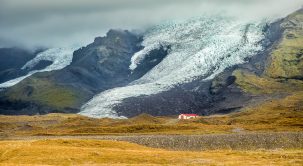ecology2
-

In Iceland, Melting Glaciers Give Way to Plant Life
A recent study examines the changes in the foreland of a melting Icelandic glacier. With ice gone, new plant life is springing up and changing a centuries-old ecosystem.
-

Out on the Farm With SEE-U NYC
This summer, the Summer Ecosystem Experiences for Undergraduates gave students an in-depth look at the food systems in and around NYC.
-

Meet the Students Studying Environmental Issues in the Middle East in 2019
This July, Columbia University and Tel Aviv University will send graduate students to the Middle East to learn about the environmental challenges facing communities in Jordan and Israel.
-

How Road Salt Harms the Environment
Recent research indicates that salt is accumulating in the environment and poses an emerging threat both to ecosystems and human health.
-

Study Signals Change in How Scientists Calculate Ancient Diets
Scientists have long determined what extinct animals ate by analyzing carbon isotopes locked inside their fossil teeth. But a new study shows that in many cases, they may be plugging the wrong numbers into their equations. The findings may change some views of how mammals, including us, evolved.
-

How Australia Got Planted
A new study has uncovered when and why the native vegetation that today dominates much of Australia first expanded across the continent.
-

Climate Change and the Re-Greening of Puerto Rico
Ecologist Maria Uriarte investigates the effects of Hurricane Maria on the forests of Puerto Rico, and how long-term climate change may affect them.
-

Researchers Map High Levels of Drugs in the Hudson River
In a new study, researchers have mapped out a large variety of discarded pharmaceuticals dissolved throughout the Hudson River. They say that in some places, levels may be high enough to potentially affect aquatic life.
-

Live from Antarctica: Scientists #TakeoverNSF
On January 31 at 1:00 p.m. EST, Lamont-Doherty’s Hugh Ducklow and his colleagues will use National Science Foundation social media to discuss their research on Antarctic ecology.

By studying thousands of buildings and analyzing their electricity use, Columbia Climate School Dean Alexis Abramson has been able to uncover ways to significantly cut energy consumption and emissions. Watch the Video: “Engineering a Cooler Future Through Smarter Buildings“
